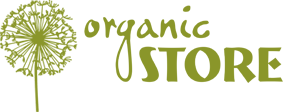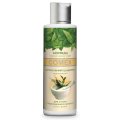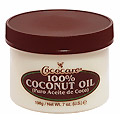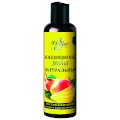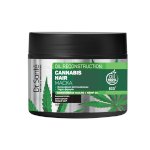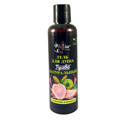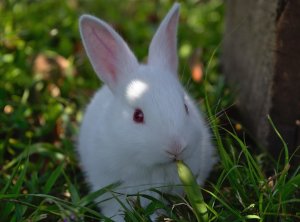 Environmentally conscious consumers prefer to buy ethical cosmetics and encourage others to do so as well. But what exactly does the term “ethical cosmetics” mean? Let’s figure out what people mean by that term and why you should opt for ethical cosmetic products whenever possible.
Environmentally conscious consumers prefer to buy ethical cosmetics and encourage others to do so as well. But what exactly does the term “ethical cosmetics” mean? Let’s figure out what people mean by that term and why you should opt for ethical cosmetic products whenever possible.
We all know that before any new cosmetic product hits the shelves, its manufacturer conducts thorough testing to make sure that the product is completely safe and won’t irritate human skin or mucosae. There are two main types of cosmetic testing: in vitro testing, where studies are performed with microorganisms, cells or biological molecules, and in vivo testing, which is conducted in living organisms. Since these organisms are typically animals, in vivo testing is widely referred to as animal testing, animal research or animal experimentation.
Test animals, such as rabbits, mice, rats, hamsters, guinea pigs, dogs and primates, are widely used to test various cosmetics, perfumes, household chemicals and their ingredients. According to the results of testing, a decision is made whether is its safe to launch production and sell the product to consumers. It is estimated that the annual use of vertebrate animals in experiments is around 50–100 million; most of them are euthanised after being used in an experiment.
Many of the tests performed on animals are controversial because of their cruelty. For example, the Draise test, which has been performed since 1944, involves applying a test substance to the eye or skin of a restrained, conscious animal (usually an albino rabbit) and then leaving it there for a set amount of time before rinsing. Effects of this test may include swelling, redness, haemorrhaging, discharge, ulceration, and blindness. If the test causes permanent damage to the eye or skin, the animal is euthanised.
Another striking example of an inhumane method of animal testing is LD50. It is an abbreviation for “lethal dose, 50%”, or median lethal dose. In this test, a tested substance is administered to a group of test animals; its dose is gradually increased until half of the test animals die within a given period of time (usually 30 or 60 days).
Animals that are being experimented on suffer and die, but the saddest thing about it is that a successful animal test of a product doesn’t guarantee that it will be completely safe for people because substances that are relatively safe for certain animal species may be toxic for humans, and vice versa. Therefore, thousands, if not millions, of animals suffer and die in vain. So, more and more people are asking the same question: “Is it really worth it?”
Manufacturers and consumers of ethical cosmetics are unequivocally confident in their opinion that it isn’t. It is entirely possible to do without cruel animal testing because modern science offers many alternatives to ensure the safety of cosmetic products and their ingredients without harming living organisms. One of them is in vitro testing that has already been mentioned above. It is simple, species-specific, convenient and, naturally, cruelty-free.
Another alternative to animal testing is artificial skin testing. Modern technologies allow to create perfectly replicated skin models using human skin cells (for example, from surgical waste). These models have the same properties as normal human skin, reacting to skincare products or ingredients more authentically than animal skin.
The third alternative to animal experimentation is computer simulation. Computer technology has developed so much since its inception that computer simulation allows to very accurately predict the reaction of a living organism to a test substance, so no one has to suffer! Finally, finished cosmetic products that are already deemed safe enough are sometimes tested on human volunteers for compatibility and acceptability. Of course, there are strict guidelines for such testing to ensure its safety.
Thus, ethical cosmetics are cosmetics whose production doesn’t require sacrificing animals to beauty, which is why they are also known as cruelty-free cosmetics. When you choose cruelty-free cosmetics, you choose modern alternative testing methods that are more humane and much more accurate than animal testing. Many brands and consumers have already made this choice, and in some countries animal testing is officially banned.
But how do you understand which cosmetics are ethical and which are not? The so-called ethical (cruelty-free) certificates issued by national or international certification bodies should help. They include, but are not limited to, Cruelty Free International (a UK-based international organisation that campaigns for the abolition of animal testing), PETA (People for the Ethical Treatment of Animals, an American animal rights organisation), and Choose Cruelty Free (an Australian organisation that campaigns to end animal testing).
These organisations verify that brands comply with ethical cosmetics production guidelines and put cruelty-free brands on their “white list”. However, the only internationally recognised symbol of cruelty-free products is the Leaping Bunny Logo, which can be used by companies certified by the Coalition for Consumer Information on Cosmetics. If you see this logo on packaging, you can be 100% sure that no animal tests were used in the development of this product.
However, the absence of the Leaping Bunny Logo doesn’t necessarily mean that a product is unethical, because not all companies seek CCIC certification. Some of the companies that produce ethical cosmetics have eco certificates, organic certificates or vegan certificates that, among other things, confirm that their products are not tested on animals. Such certificates include BDIH, Ecocert, Natrue (the International Natural and Organic Cosmetics Association), Cosmebio, and the Vegan Trademark of The Vegan Society (UK).
Where can you buy ethical cosmetics? Well, for instance, our online shop Organic Store has a wide range of natural and organic cruelty-free cosmetics to suit any taste and budget. At Organic Store, we offer convenient and secure payment methods and international delivery to most parts of the world.
